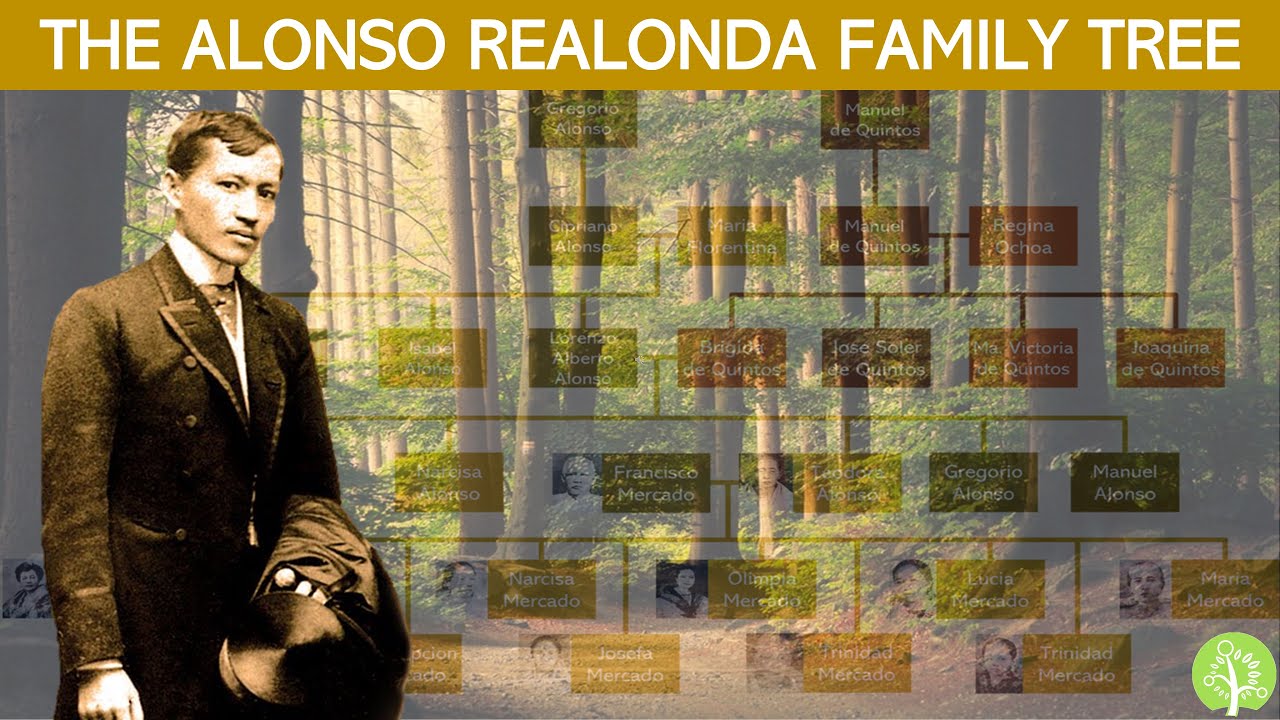Narciso Claveria Series | Claveria & the Importance of 1844 in Philippine Genealogy
Summary
TLDRIn this video from the Filipino Genealogy Channel, we explore Narciso Claveria's lesser-known 1844 decree that corrected the Philippine calendar, which had been off by a day since the 1500s. Claveria's decree erased December 31, 1844, bringing the country in sync with the rest of the world. This correction continues to affect genealogical research, as historical records before January 1, 1845, are one day behind. This video highlights Claveria's significant yet often overlooked contributions to Philippine history and genealogy, with implications for accurately dating historical events and individuals.
Takeaways
- 😀 Narciso Claveria's contributions to Filipino genealogy are not limited to the famous 1849 surname decree.
- 😀 In 1844, Claveria issued a lesser-known but impactful decree that corrected the Philippine calendar.
- 😀 The Philippine calendar was a day behind the rest of the world from the time of Magellan's arrival in 1521 until 1844.
- 😀 This calendar discrepancy was discovered by Antonio Pigafetta, Magellan’s chronicler, who noticed the day difference upon returning to Spain.
- 😀 Claveria's 1844 decree erased December 31, 1844, and moved directly from December 30, 1844, to January 1, 1845.
- 😀 The calendar correction had significant effects on Filipino genealogical research, particularly for dates prior to January 1, 1845.
- 😀 Genealogists now need to account for the one-day difference in records before 1845, such as birth and baptismal dates.
- 😀 The baptismal record of martyr Father Jose Burgos illustrates the importance of adjusting dates in genealogical records.
- 😀 Without Claveria's correction, many genealogical records would reflect inaccurate birthdates, marriage dates, and death dates.
- 😀 Narciso Claveria's influence on Filipino genealogy is profound, and his 1844 decree remains a vital part of Filipino history.
Q & A
Who is Narciso Claveria and why is he significant in Filipino genealogy?
-Narciso Claveria was a Spanish governor general in the Philippines, known for his significant contributions to Filipino genealogy. His most famous contribution is the surname decree of 1849, which required Filipinos to adopt Spanish surnames. However, he also made other important contributions, such as correcting the Philippine calendar in 1844.
What was the 1844 decree issued by Narciso Claveria?
-In 1844, Narciso Claveria issued a decree that corrected the Philippine calendar, which had fallen one day behind the rest of the world. This was due to a mistake made during the Spanish arrival in the Philippines, dating back to the Magellan expedition in 1521.
Why was the Philippine calendar one day behind the rest of the world?
-The mistake occurred because the Spanish, when they reached the Philippines, continued using the same calendar as Spain's, which did not account for a time discrepancy as they traveled westward. This led to the Philippines being one day behind the global calendar from the 1500s until Claveria’s correction in 1844.
How did the Philippine calendar correction affect genealogical research?
-The calendar correction meant that every record before January 1, 1845, was actually one day behind the true date. This affects genealogical records such as birth, marriage, and death dates, requiring historians and genealogists to adjust those dates for accuracy.
What specific action did Claveria take to correct the calendar in 1844?
-Claveria's decree stipulated that December 31, 1844, would not exist, and instead, December 30, 1844, would be immediately followed by January 1, 1845. This effectively erased one day from the calendar, aligning the Philippines with the rest of the world.
How does the calendar correction affect historical records such as birth certificates?
-Historical records, such as baptismal and birth certificates, from before January 1, 1845, are affected by the calendar correction. For instance, the baptismal record of Father Jose Burgos shows his birth date as February 8, 1837, but applying Claveria’s correction changes his birth date to February 9, 1837.
Why is the correction of a single day in the calendar important for genealogists?
-The correction of a single day is important because it could change the accuracy of birth, marriage, and death dates recorded in historical documents. Even a one-day difference could impact genealogical research, leading to a more accurate family history.
How did Claveria's decree impact Filipino society beyond genealogy?
-Claveria’s decree had a broader impact by standardizing the calendar in the Philippines, which improved synchronization with the global timekeeping system. It reflected Spain’s continued governance over the Philippines and helped formalize the country’s integration into the global community.
What role did the church play in the 1844 calendar correction decree?
-Claveria consulted with the church before issuing the 1844 decree. The church’s involvement ensured that the correction was implemented with proper regard for religious practices and the Catholic calendar, which was significant in the predominantly Catholic Philippines.
How did Claveria’s contributions extend beyond the famous surname decree of 1849?
-While Claveria is best known for the 1849 surname decree, his impact was broader, including the calendar correction of 1844. His work in improving governance and record-keeping in the Philippines left a lasting legacy on Filipino society and genealogy.
Outlines

このセクションは有料ユーザー限定です。 アクセスするには、アップグレードをお願いします。
今すぐアップグレードMindmap

このセクションは有料ユーザー限定です。 アクセスするには、アップグレードをお願いします。
今すぐアップグレードKeywords

このセクションは有料ユーザー限定です。 アクセスするには、アップグレードをお願いします。
今すぐアップグレードHighlights

このセクションは有料ユーザー限定です。 アクセスするには、アップグレードをお願いします。
今すぐアップグレードTranscripts

このセクションは有料ユーザー限定です。 アクセスするには、アップグレードをお願いします。
今すぐアップグレード5.0 / 5 (0 votes)






